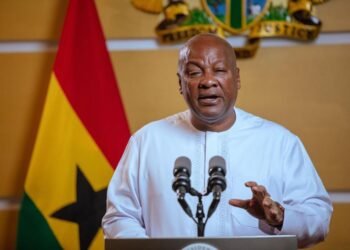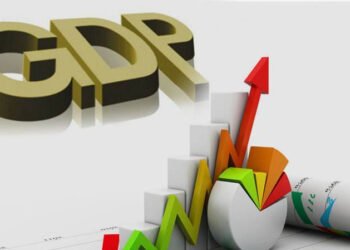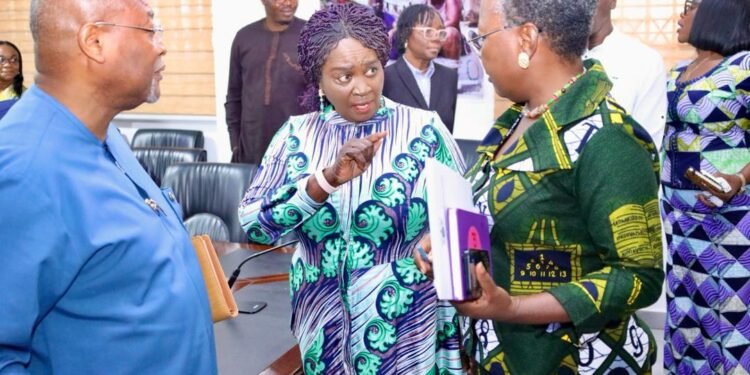The International Monetary Fund (IMF) has unveiled its projections for Ghana’s real Gross Domestic Product (GDP) growth in 2024, where it predicted moderate growth for Ghana.
According to the October 2023 Regional Economic Outlook Report, the IMF anticipates a 2.7% expansion for Ghana, slightly below the 2.8% forecasted by the Government in its 2024 budget.
A significant driver behind the IMF’s optimistic growth forecast is the expected increase in government expenditure for the 2024 fiscal year. The projected total government expenditure stands at approximately GHS 226 billion, constituting around 21.6% of the country’s current GDP.
Finance Minister Ken Ofori-Atta emphasized that this figure reflects a noteworthy 6.1% reduction in total expenditures (commitment basis) relative to the 2022 outturn.
Fiscal consolidation efforts play a pivotal role in shaping the government’s expenditure strategy. Minister Ofori-Atta highlighted a 4.9% of GDP consolidation effort, achieved through a 1% adjustment in revenue and a 4% cut in primary expenditure. This underscores the government’s commitment to streamlining fiscal policies to ensure sustainable economic growth.
The IMF’s optimistic outlook is also contingent upon improvements in key macroeconomic indicators. Notable enhancements include a reduction in inflation, a stable exchange rate, and a decrease in the country’s debt stock. These factors collectively contribute to a favorable economic environment, fostering investor confidence and supporting growth prospects.
Debt Management and External Debt Service Suspension
The report indicates a concerted effort to reduce the country’s debt burden. A decrease in external debt service, as mentioned in the IMF projections, reflects a strategic move to ease financial pressures and create fiscal space for other critical expenditures.
This debt management strategy aligns with broader global trends emphasizing the importance of prudent financial management to safeguard economic stability.
In comparing the IMF’s growth projection for 2024 with the 2023 real GDP growth, a slight discrepancy is evident. The IMF projected a 1.2% growth for 2023, which falls short of the 1.5% target set in the 2023 mid-year review budget.
This variance prompts a closer examination of the economic dynamics influencing these outcomes and raises questions about the resilience of the Ghanaian economy in the face of external and internal challenges.
Beyond the immediate economic outlook, the IMF’s growth projection for Ghana in 2024 carries implications for the country’s broader development agenda. The envisioned increase in real GDP suggests potential positive ripple effects, ranging from enhanced employment opportunities to an improved standard of living for the population.
However, the government must remain vigilant in ensuring that growth is inclusive and addresses socio-economic disparities. Additionally, leveraging this economic momentum to invest in sectors such as education, healthcare, and infrastructure will be crucial for fostering long-term resilience and positioning Ghana on a sustainable development trajectory.
Balancing short-term economic goals with a focus on building a robust and inclusive foundation is essential for ensuring that the anticipated growth contributes meaningfully to the overall well-being of the Ghanaian populace.
The IMF’s projection of a 2.7% real GDP growth for Ghana in 2024 reflects an optimistic stance, considering the multifaceted factors influencing the Ghanaian economic performance.
As the government strives for fiscal consolidation and improved macroeconomic stability, the path to sustainable growth necessitates a delicate balance between expenditure, revenue generation, and debt management. Monitoring the actual outcomes in the coming year will provide valuable insights into the effectiveness of the proposed policies and their impact on Ghana’s economic trajectory.
READ ALSO: Israel Erasing Palestinian History, Destroying Its Future























